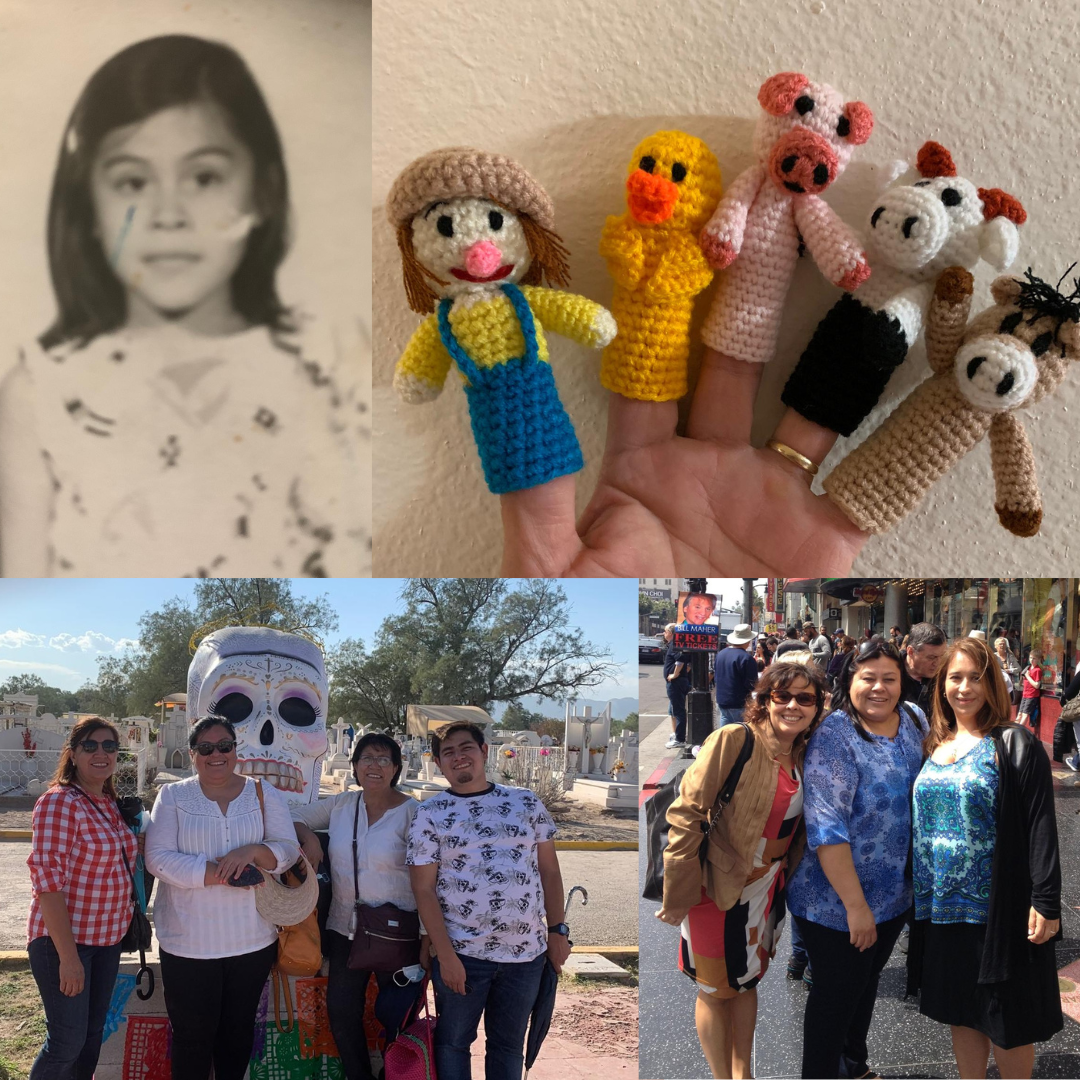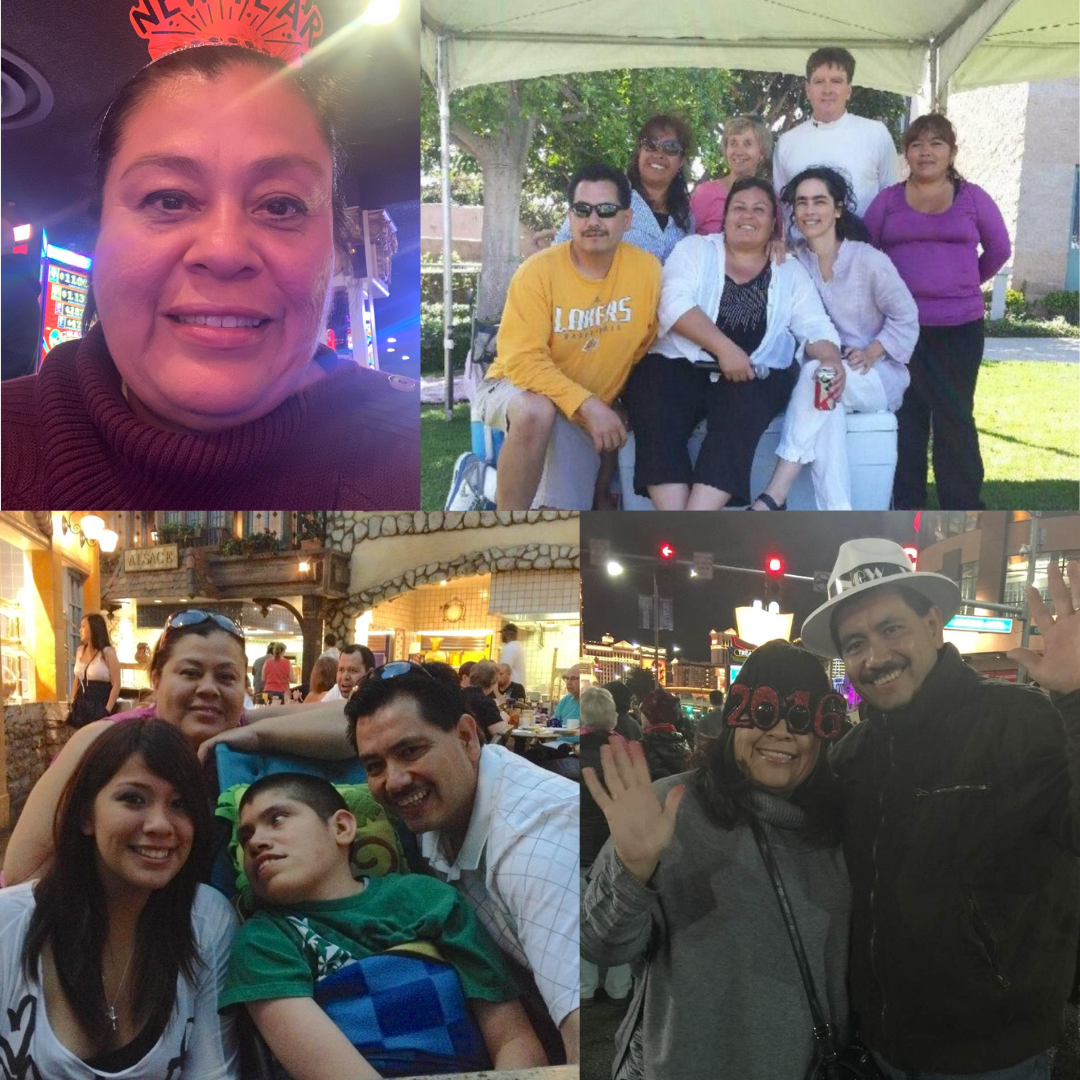Your Child Is Not Broken, Is Not a Disability, a Diagnosis, or a Label
By Carol Colmenares
(Versión original en español de este artículo)
Losses and gains seem to go persistently hand in hand in Myrna's life. From each painful experience, Myrna emerges stronger and more confident. When she was still very young, her mother emigrated to the United States in search of better opportunities. Myrna, two young brothers, and three older sisters stayed with their grandmother and aunt. She was the youngest in the family, the spoiled one. They lived in a colonial house in the city center of the Comarca Lagunera in the state of Durango. Myrna remembers watching the November 20th parades from one of the windows, holding onto the railings that reached the sky, with her little feet hanging down toward the street. The large house, with long hallways, had a backyard at the end with a big tree in the middle. "They would buy us old things, like a car tire, chickens, and a little pig to play with. We also wanted a pool, so we would fill the yard with water from the hose and swim there, belly down on the wet ground."
 Myrna dreamed of being an astronaut, looking at the stars and perhaps longing for her mother's return. "I think I often wanted to mask my loneliness, I wanted to forget what people said: that my family didn't love me and so on. But I always loved myself. I always knew I was a loved child." She also had a strong group of friends she would meet at church. "I really liked going to church; it was my way of getting out, of starting something new."
Myrna dreamed of being an astronaut, looking at the stars and perhaps longing for her mother's return. "I think I often wanted to mask my loneliness, I wanted to forget what people said: that my family didn't love me and so on. But I always loved myself. I always knew I was a loved child." She also had a strong group of friends she would meet at church. "I really liked going to church; it was my way of getting out, of starting something new."
As a teenager, Myrna traveled to reunite with her mother, who by then had built a new home. Myrna became the oldest sister, the one who took care of the younger ones. She thought she would soon return to Mexico since she didn't speak English and had plans to study, pursue a career, and move forward. To her surprise, her mother had already enrolled her in school, where she was met with a hostile environment due to her poor language proficiency. Despite her newfound cousins' efforts to guide her and make the adjustment less traumatic, Myrna wasn't interested. It wasn't until one of her teachers managed to see beyond her rebellion and confronted her, saying, "What's the plan?" and challenged her to make an effort while she was still there. "I've never liked being reprimanded," Myrna tells us. And from then on, her goals and grades got higher and higher. She finished hIgh school and continued studying at a vocational school, where she graduated as a legal assistant, a job she held for 14 years. Later, she started studying nursing but was never able to finish. To this day, her strong desire to help others is still very much alive.
Anyone who doesn't believe in the power of destiny would have difficulty explaining how, more than three decades ago, during a time of slow communications, her neighbor Juan, her childhood friend, found her in California and became her husband and the father of her children.
First came their daughter Delores, a much-wanted child, and 4 years later, the couple celebrated the news that they would be parents again. It wasn't an easy pregnancy, and in the last few months, Myrna was diagnosed with preeclampsia, which led doctors to advise an early birth at seven months and three weeks. He spent 10 days in the incubator because the doctors could not wake him up. Finally, Myrna and Juan returned home with Norman. Myrna decided to work in the afternoons at the law firm. Her mother from Mexico, who was helping with the babies at the time, called her worried because Norman wouldn't stop crying. At three weeks old, Norman had his first surgery to remove a hernia. Myrna began to notice that Norman's development was not typical; he didn't lift his head and rejected her breast milk. "You worry too much," the doctors told her, "Go home; this will soon pass." After switching pediatricians several times, the diagnosis was made: Norman was blind. Both Myrna and Juan were heartbroken. "Now I can relate to many mothers when they receive such a diagnosis; you're looking for the magic wand that will cure your child." In the next room, a psychologist counseled them. "It's okay to cry," she said… "but the child you took home just died, and a new Norman was born."
Myrna couldn't believe what she was hearing, "What's wrong with this woman? Doesn't she see how we're suffering? But now I understand."
A series of daily therapies for Norman began. However, Myrna didn't see much progress, and an ear exam was recommended: "The child sleeps a lot and doesn't respond when spoken to." At 11 months, Norman was diagnosed with deafness. Another blow.
"In other words, it was as if they were taking him away from me piece by piece." More therapies were added, time passed, and Norman still didn't lift his head, remaining just as fragile, just as weak. He had a muscle problem. "And one day, they told me you have to take him to a neurologist. I said, I don't want to; I'm not taking him because I don't want them to keep telling me things. It hurts too much. Every time they tell you your child is not okay, I'll say it again: they're taking him away from you piece by piece."
The family dynamic wasn't the best. Norman received a lot of attention, Juan became depressed, and Deloris felt isolated. Myrna decided she had to move forward for her family. "At first, we didn't want to tell friends and focused a lot on talking to professionals." They began receiving services from California Deaf-Blind Services. "I talked with other moms, got involved in everything I could, and went to camps, support groups, and church. I did everything I could to try to move forward.
And so, between therapies for Norman, medical appointments, and her little Deloris growing up, Juan and Myrna found time for fun. Returning one weekend from Las Vegas, Myrna noticed that Norman wasn't well, checked him, and found nothing visible. Upon arriving at the ER, they were told his heart was failing and that he might need a transplant. "I remember getting calls, and they would say, surrender him to God… I thought: I don't want to. How can you surrender your child to God? You can't."
 Norman responded to the medication; he was 4 years old. "We went through another mourning process because I knew that blindness wouldn't kill him, deafness wouldn't either, but his heart would." From then on, with Norman, it would be one day at a time.
Norman responded to the medication; he was 4 years old. "We went through another mourning process because I knew that blindness wouldn't kill him, deafness wouldn't either, but his heart would." From then on, with Norman, it would be one day at a time.
Norman passed away at 20 years old, living day by day, taking walks, traveling, meeting other parents, and Myrna working on what she loves most: serving the community.
"I tell my story because, although I know there are other stories just as difficult or even more difficult than mine, this is me. This has made me who I am."
Myrna has been working for 24 years in the California Deaf-Blind Services program. "I have worked hard to tell parents to respect their children as human beings. They are not broken. They were born that way, and we have to see them as human beings, not as a disability, or as a label, or as a diagnosis."
"Now I understand why the psychologist told me, you'll have to learn to love Norman. I learned to love him without him seeing me, without him hearing me. I learned. And I am proud that I always saw my Norman as a person who had the right to enjoy life."
Since 2000, Myrna has been the Family Coordinator for California Deaf-Blind Services. Her dream is to create support groups for siblings. Her daughter Deloris, her husband Juan, and her extended family continue to be her great source of energy.
"I am an emotionally strong person," she tells us. I want to travel, I want to see many places, to honor Norman because, despite all his limitations, locked in that little body that couldn't move, he was happy."
In the meantime, you can find Myrna in her succulent garden, which she cares for and cultivates herself, or perhaps knitting blankets that she later donates, and if there’s time, on a little getaway to Las Vegas with her extraordinary husband, Juan.
